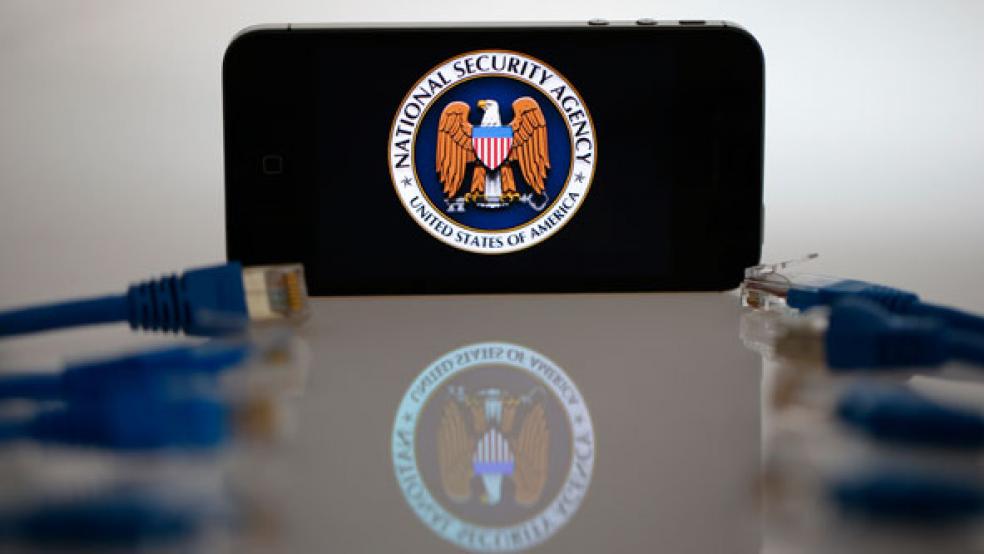Opponents of the National Security Agency’s vast surveillance network won an important victory Tuesday when U.S. District Judge Richard Leon ruled that the agency’s collection of cell phone data without a warrant was an unconstitutional violation of privacy. However, national security law experts warned that the victory is likely to be short lived.
Leon ruled that the government could no longer connect metadata culled from cell phone calls, a fancy way of saying that the NSA can't track whom we call and who calls us. But according to Stephen I. Vladeck, a law professor at American University and expert in national security law, the ruling does not mean that NSA is going to alter its activities in any way.
Related: NSA Leaker Edward Snowden Is About to Break His Silence
"In the short term, there will be no impact," Vladeck said in an interview. "The NSA is going to be able to do tomorrow what they can do today."
Opponents of the NSA surveillance programs, laid bare in documents leaked by former NSA contractor Edward Snowden, say the government has gone too far in its collection of data. Defenders of the NSA charge that the metadata it collects helps to prevent terrorist attacks and that the program does not violate privacy because it only records whom one calls, not the content of the call.
Leon dismissed this defense of the program. He ruled that Americans have an expectation of privacy in their phone activity. His ruling also said the NSA did not provide evidence that the program stopped the 54 attacks the government claimed it had, despite the government having the opportunity.
Symbolic Victory
However, Vladeck said that Leon's ruling, while a victory for privacy advocates, is unlikely to stick.
Related: Here’s How Edward Snowden Got ‘Top Secret’ Clearance
"This is an important symbolic holding in that it suggests there are constitutional concerns with it," he said. "Nothing is going to stop the government in the short term from using the authorities it believes it has."
He added that no real changes would be made to the program unless Congress acts to alter it.
"The metadata program is a creature of statute," he said. "Congress could stop it. They could scale it back. They could provide different checks and balances in the program. They could reinvent it in its current form."
Former NSA Director Michael Hayden also challenged the ruling, saying that the judge was not in a position to determine whether or not the program stops attacks.
"He makes a judgment that the government was not able to show that this stopped an imminent terrorist attack. That's not the only metric," Hayden told the Associated Press.
Heading to the Supreme Court
The Obama administration refused to say whether or not they would appeal, but hinted that further legal action was coming.
"We've seen the opinion and are studying it. We believe the program is constitutional as previous judges have found," Andrew C. Ames, a spokesman for the Justice Department's National Security Division, said in a statement to the Associated Press. In an email, Ames said there was no update on that statement.
Vladeck said he believes that the ruling is the first in a long line of legal challenges that NSA programs would face. He said he expected the government to appeal the decision. He also said that he expects issues connected to the NSA to eventually reach the highest court in the land, although it's not clear whether this case would be the one to take them there.
"The larger question of whether the fourth amendment limits the government’s ability to collect data will eventually get to the Supreme Court," he said. "Whether it happens in this case remains to be seen."
Top Reads from The Fiscal Times





